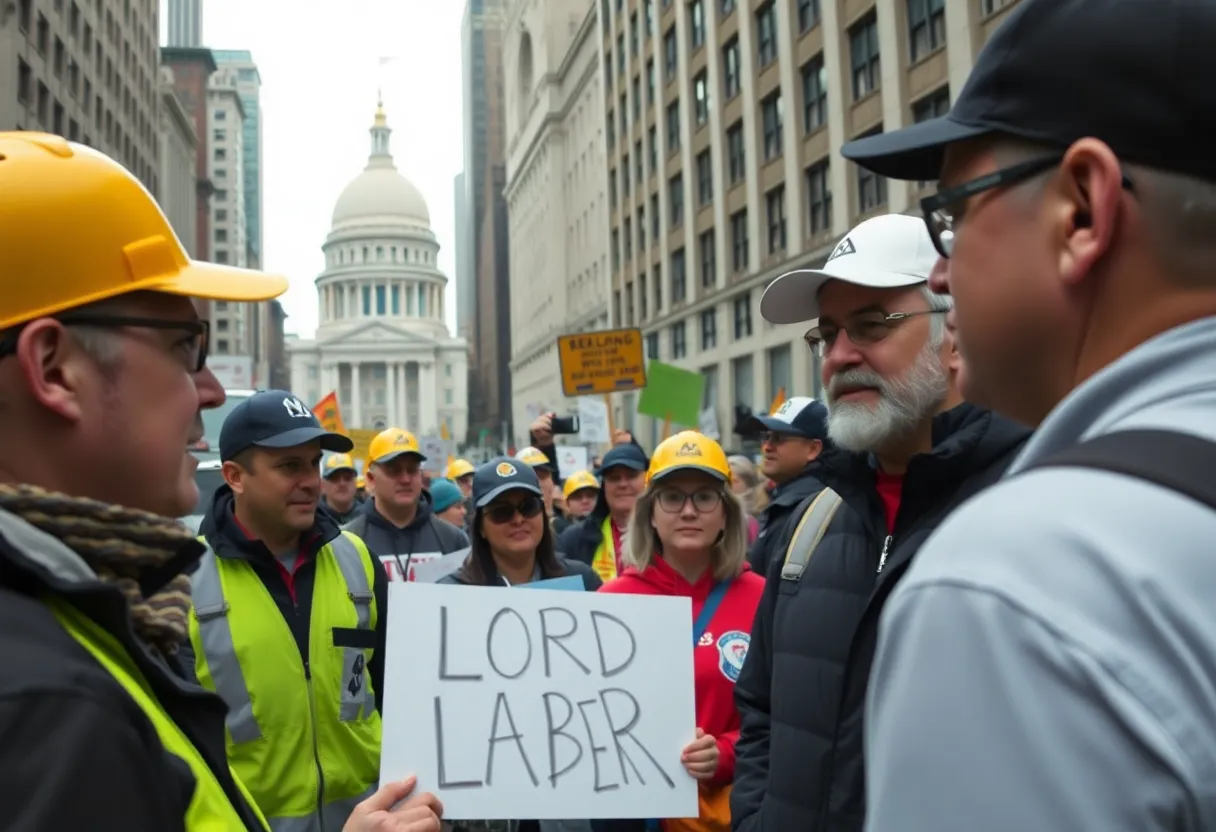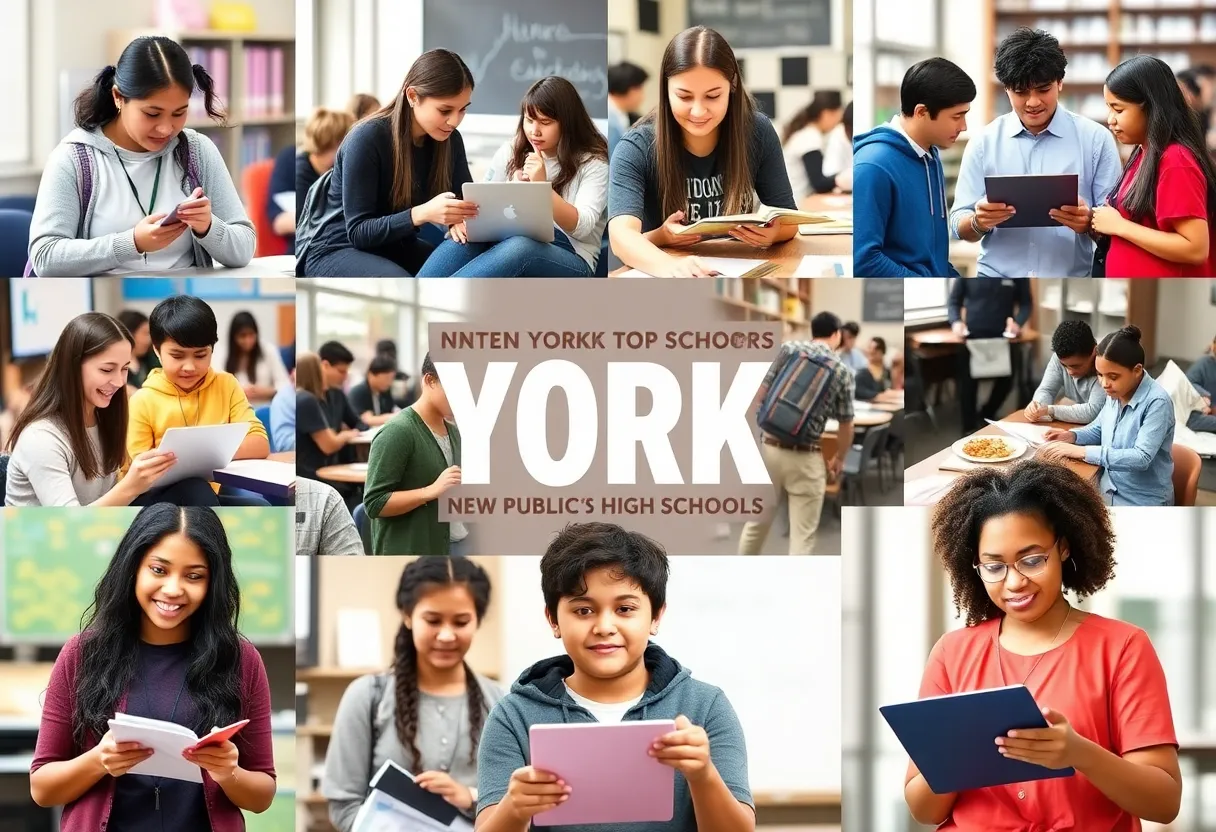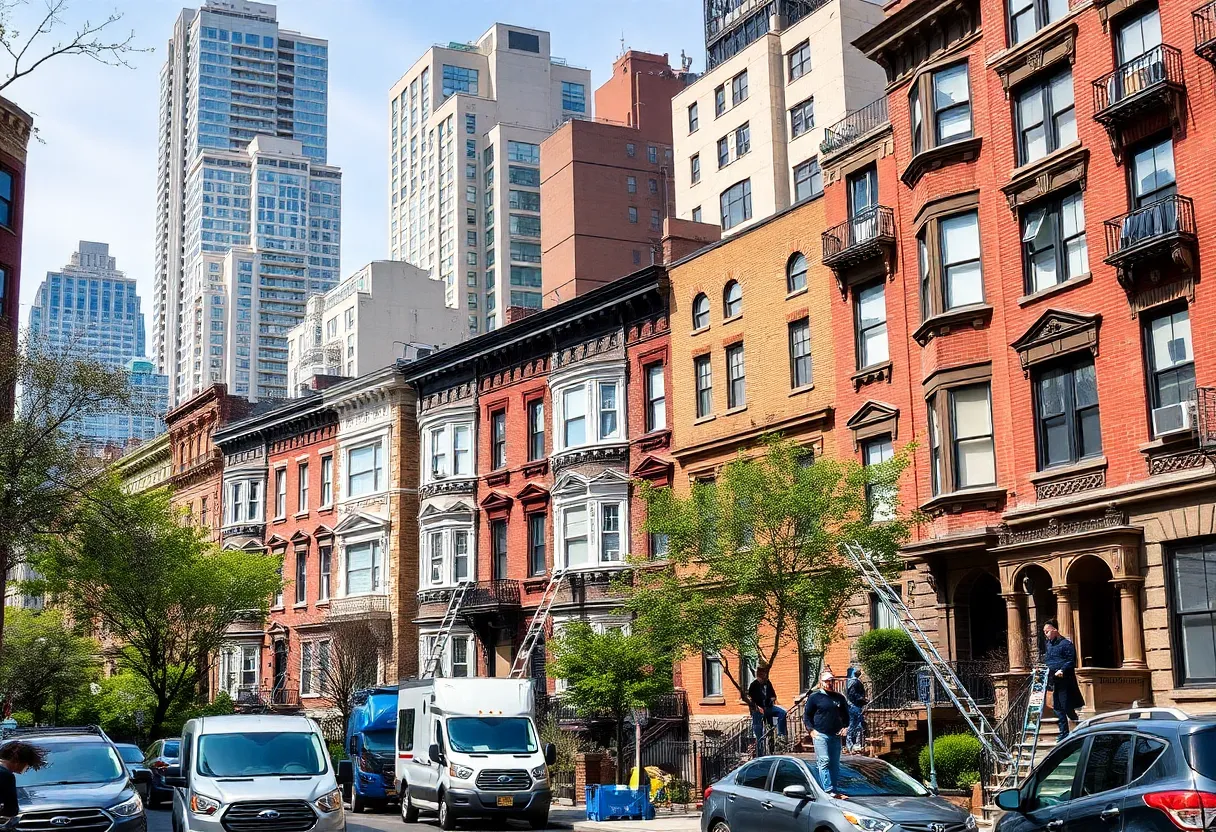News Summary
New York has enacted a new law that enhances the authority of its Public Employment Relations Board (PERB) to address unfair labor practices and enforce collective bargaining agreements. This law positions PERB similarly to the National Labor Relations Board (NLRB), allowing for more effective resolution of labor disputes in the private sector amidst federal limitations. However, legal challenges have emerged, as the NLRB opposes this state-level intervention, arguing it could conflict with federal labor policy. This significant development could impact labor relations not only in New York but also in other states considering similar legislation.
New York Enacts Law Expanding Labor Board Authority
New York has enacted S.8034A, a law that transforms its Public Employment Relations Board (PERB) into a mini-National Labor Relations Board (NLRB). The new legislation grants PERB the authority to resolve unfair labor practices (ULPs), enforce collective bargaining agreements, and certify unions in the private sector. This significant development aims to enhance worker protections amidst growing concerns of inadequate federal labor regulation.
The move comes as the NLRB has lacked a quorum since January 2025, severely limiting its ability to address administrative law judges’ rulings on ULPs and representation cases. As a result, the NLRB has been criticized for being underfunded and suffering from staffing shortages in its regional offices. In light of these federal challenges, New York’s new law reflects a state-level response to ensure that labor disputes can be addressed effectively.
The enactment of S.8034A not only highlights New York’s priorities but also signals a trend, as other states such as California and Massachusetts are contemplating similar legislation to expand their state labor board jurisdictions over private-sector employers. By taking action during a time of federal inaction, New York is attempting to secure labor rights and protections for workers, particularly those in the private sector.
Legal Backlash from Federal Authorities
The implementation of New York’s law has not gone without controversy. The NLRB, led by Acting General Counsel William Cowen, opposes state involvement in federal labor policy. Cowen has expressed concerns that New York’s legislation could be preempted by the National Labor Relations Act (NLRA) and may violate the Supremacy Clause of the U.S. Constitution.
In response, the NLRB has filed a lawsuit in the U.S. District Court for the Northern District of New York challenging the enforcement of S.8034A. The Board argues that the law creates a parallel regulatory system which undermines existing federal labor policy. Federal precedent underscores this stance, notably the U.S. Supreme Court case San Diego Building Trades Council v. Garmon, which emphasizes federal authority over state intervention in labor matters.
New York’s law notably restricts the exemption previously granted to employers covered by the NLRA, allowing PERB to act whenever the NLRB fails to assert jurisdiction. However, confusion persists, as federal courts do not have explicit rules governing the NLRB’s assertion of jurisdiction, complicating the application of this new law.
Concerns from Employers and Businesses
Despite the state’s intentions to provide mediation in labor disputes, there are concerns about compliance complexities for employers. The NLRB contends that 95% of labor disputes are processed by regional offices without the necessity for Board involvement. However, New York’s law could change the landscape of how private-sector disputes are managed and resolved.
In a separate legal challenge, Amazon has filed a lawsuit against the implementation of New York’s law, arguing that it represents an unconstitutional overreach that undermines federal authority. The company is seeking a temporary restraining order against the law, although its initial request was denied by the U.S. District Court due to procedural issues.
Implications for Workers and Labor Relations
The new law allows PERB to have jurisdiction over private-sector disputes only when the NLRB is incapable of resolving them, highlighting a potential gap in labor management. New York Governor Kathy Hochul has expressed support for the law as a response to federal efforts viewed as threatening labor unions.
Overall, while New York’s S.8034A aims to bolster worker protections during a vital moment of federal inaction, it raises significant legal questions and challenges regarding jurisdiction that may unfold in the courts. The ongoing situation could impact the future dynamics of labor relations, not just in New York but potentially across other states considering similar measures.
Deeper Dive: News & Info About This Topic
- Reuters: Amazon Sues to Block New York State Labor Law
- DWT: New York State PERB Labor Law and NLRB
- Labor Relations Update: New York Labor Relations Act Expansion
- Wikipedia: Labor Law
- Littler: New York Enacts Sweeping Amendments to Child Labor Laws
- The Center Square: New York Labor News
- Google Search: New York Labor Law

Author: STAFF HERE NEW YORK WRITER
The NEW YORK STAFF WRITER represents the experienced team at HERENewYork.com, your go-to source for actionable local news and information in New York, the five boroughs, and beyond. Specializing in "news you can use," we cover essential topics like product reviews for personal and business needs, local business directories, politics, real estate trends, neighborhood insights, and state news affecting the area—with deep expertise drawn from years of dedicated reporting and strong community input, including local press releases and business updates. We deliver top reporting on high-value events such as New York Fashion Week, Macy's Thanksgiving Day Parade, and Tribeca Film Festival. Our coverage extends to key organizations like the Greater New York Chamber of Commerce and United Way of New York, plus leading businesses in finance and media that power the local economy such as JPMorgan Chase, Goldman Sachs, and Bloomberg. As part of the broader HERE network, including HEREBuffalo.com, we provide comprehensive, credible insights into New York's dynamic landscape.





